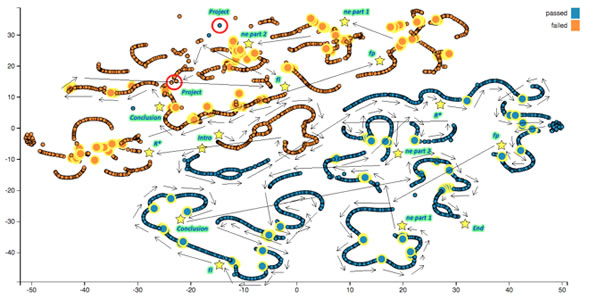
| Interests | Projects | ||
|
Research Interests
My research interests fall under the category of "Education for the Anthropocene". As we enter a new geologic era where we make an outsized impact on the planet but without a clear idea of the consequences of our actions, it has become increasingly important to educate and train global stewards. We need citizens who have a global perspective and can think and reason scientifically to solve increasingly complex problems. My research focuses on improving science education at the young adult and adult level, specifically focusing on interdisciplinary science (sustainability, geoscience, and astrobiology).
|

|
|
|
Projects
Simplifying Science Introductory science courses remain stuck in lecture-lab structures that don't exemplify the process of science, leaving students with little knowledge about how the actual process of science works and a dependence on others to tell them what is "true" throughout their lives. This project is working to rebuild the science classroom around the active process of science, based on observations and assumptions and the derivation of knowledge from their acquisition and testing. The goal is to utilize the introductory science classroom (regardless of field) to teach students scientific thinking. It also has students rummaging through their trash to assemble experiments (since it's cheaper than proper lab equipment, more creative and engaging, and allows us to scaffold lab methodologies). Related: Science Voices Blog Role-Playing Games for Environmental Education Environmental education tends to take the form of teachin about recycling, conserving power, or other small changes people can make in their lives. However, the vast majority of environmental problems are a results of systematic dysfunction, and so proper environmental education requires teaching about democratic systems, decision making, and their interface with Earth systems. The Sustainable States project explores how role-playing games can be utilized to help teach these concepts by having students take on and role-play various perspectives, from countries debating about climate change to local communities debating land use. Related: Sustainable States Pedagoginomics A lot of research has explored how students learn and behave in the classroom. But little research has gone into how teachers develop and adapt each others' content. This is because this kind of research is extremely difficult beause there is no easy way to collect this data at large scales. This has resulted in a lot of learning libraries that contain lesson plans and activities with essentially no data available on their effectiveness and the context of any effectiveness. A big consequence is that teachers are constantly reinventing the wheel with these resources as they adapt them to their students and classrooms. With the Agavi project, I am working to develop methodologies to explore how science teaching activities mutate over time and space. The goal of this project is to identify patterns in how teaching materials are adapted to their environment so that these patterns can be utilized via AI and machine learning to help adapt teaching content across cultural barriers. Related: Agavi | ||